Whether with jelly or banana, on your breakfast waffle or in cookies, peanut butter is a favorite for many of us. Unfortunately, due to its high fat content and sometimes high sugar and/or salt content, peanut butter seems to have become more of a guilty pleasure nowadays, although as a great source of plant-based protein, it is actually ideal in a range of diets.
In this article we step away from everyday peanut butters and instead take a look at some of the healthier options available to us. We review a selection of natural and low sodium peanut butters and powdered peanut butters to help you to choose the best peanut butter, whatever your lifestyle or health needs are. We also consider what you should look for when choosing a healthier peanut butter and offer a range of ways to use powdered peanut butter – the latest addition to the PB product family.Quick Comparison: Top 10 Best Peanut Butters
1. PB2 Powdered Peanut Butter Bundle
The PB2 powdered peanut butter bundle includes a 16 oz jar of powdered peanut butter and a 16 oz jar of peanut powder with cocoa. Containing 90% less fat than traditional peanut butter, this is a versatile powder that can be added into protein shakes, smoothies, spreads and cakes, or you can just sprinkle it on your favorite foods.
This powdered peanut butter is made by pressing fresh roasted peanuts to remove much of the oil and then adding some sugar and salt for flavor. A serving of this provides just 1.5 grams of fat while still offering 6 grams of protein. This is a kosher, low carb and keto friendly powder that is certified vegan and gluten free. It is also Non-GMO Project Verified.
There seems to be some problems on the inner seal on some of these jars and the odd buyer has commented that the taste is preferable when used in shakes and other foods rather than mixed up with water as a peanut butter spread. Also as this is a powder, you will not get the full taste experience that you would when eating traditional peanut butter.Pros
Cons
2. PBfit Peanut Butter Powder
Containing 8 grams of protein in one serving, the PBfit peanut butter powder is ideal to add extra protein to smoothies, shakes, baked goods and more. This can also be blended with water to make a peanut butter spread. Certified USDA organic and free from any GMO ingredients, this peanut butter powder is made from organic peanuts, organic coconut palm sugar and salt.
Coming as a 30 oz jar, this is also certified gluten free and a serving contains 87% less fat and one third of the calories than traditional peanut butter. The odd buyer has not been keen on the taste of this and considers it is sweeter tasting that regular peanut butter.Pros
Cons
3. Jif Reduced Fat Creamy Peanut Butter
Containing 7 grams of protein per serving, the Jif reduced fat creamy peanut butter is a lower sodium peanut butter that contains 25% less fat than regular peanut butter. This is a smooth peanut butter that spreads easily and has a fresh-roasted peanut taste.
Available in a variety of jar sizes this is also non-GMO. The odd buyer considers this to be sweeter than other peanut butters; possibly making up for loss of flavor due to the reduced fat. There can also be a risk of the inner seals being damaged during shipping.Pros
Cons
4. NAKED PB Powered Peanut Butter
Made from 100% roasted peanuts which are non-GMO and sourced from US farms, the NAKED PB powdered peanut butter contains 6 grams of protein, 50 calories, 4 grams of carbs and 0.9 grams of branched chain amino acids/BCAAs in each serving.
This 2 lbs. jar of powder has been independently tested for heavy metals and is certified as gluten free and vegan. Ideal for adding to smoothies or baked goods, this can also be used as a protein source in vegan recipes. Some buyers are disappointed in the lack of taste with this powder, especially if it is added to water to make a peanut butter spread. If you do want it so you can taste the peanuts, you may find that you will need to add some ingredients for more flavor.
Pros
Cons
5. Teddie All Natural Peanut Butter
Made in the US from homegrown peanuts, the Teddie All Natural peanut butter has no added sugar or preservatives. This is a peanut butter rather than a peanut butter spread, as it is made only with dry roasted peanuts and salt. This is vegan, gluten free and Non-GMO Project Verified. Available as a 16 oz or 26 oz jar, the contents of this peanut butter can naturally separate, so the manufacturer recommends you refrigerate it on opening to slow down the oil separation.
Some buyers have not been keen on the taste of this compared to a regular peanut butter and it can be difficult to stir to mix the oil back in. It can also be oilier than other peanut butters, making it runnier when used as a spread.Pros
Cons
6. Justin’s Classic Peanut Butter
The ten pack of individual 1.15 oz squeeze packs of Justin’s classic peanut butter are designed for meals on the go. This peanut butter is made from dry roasted peanuts and responsibly sourced palm oil (RSPO). This is also non-GMO and certified gluten free.
Not all buyers are happy that this is made with palm oil and some consider it to be too grainy in texture. This texture, along with the oil means you will have to knead the packet well to mix the peanut and oil before extracting the peanut butter.Pros
Cons
7. Skippy Creamy Peanut Butter
Coming as a family-friendly 5 lbs. jar, the Skippy peanut butter is a creamy and smooth peanut butter that spreads easily without any separation. Certified kosher, this is also free from gluten and tree nuts and it does not contain any added preservatives.
A serving of this provides 7 grams of protein and as well as peanuts, it contains sugar, hydrogenated vegetable oil to prevent separation and salt. There can be a risk of receiving this jar damaged and some buyers consider it to be an oilier peanut butter. Although it contains an added oil, it can still be prone to separating so may need a good stir before using.
Pros
Cons
8. 365 Everyday Value Organic Creamy Peanut Butter
Made from homegrown peanuts, the 365 Everyday Value organic creamy peanut butter is a no added sugar peanut butter which is also free from salt. This is Non-GMO Project Verified and USDA Organic and is also certified as kosher and vegan. This 16 oz jar of jar of peanut butter may be too runny for you if you prefer a thicker peanut butter and because this is a natural or pure peanut butter without any sugar or salt, not everyone will be as keen on its taste.
Pros
Cons
9. Crazy Richard’s Peanut Butter
The 1 lbs. jar of Crazy Richard’s peanut butter is a creamy and natural peanut butter which is easy to spread. This does not contain any hydrogenated oils, added sugar or salt and is made from US-grown and non-GMO peanuts. This is also certified kosher.
As a natural peanut butter which is free from sugar and salt not all buyers will be as keen on its taste and some recent buyers have struggled to stir in the oil after it has separated in the jar. This can also be runnier that traditional peanut butters.Pros
Cons
10. Earth Balance Coconut Peanut Butter Creamy
The Non-GMO Project Verified Earth Balance coconut & peanut spread is a creamy spread that contains 80% peanuts with extra virgin coconut oil. This is also vegan, certified kosher and gluten free. This comes as a 1 lbs. jar and is sweetened with agave syrup and also contains palm oil and as this does contain coconut oil, it does have a slightly different taste than a traditional peanut butter spread. Some buyers have also been disappointed that the coconut flavor does not come through as much as other peanut/coconut blend spreads.
Pros
Cons

Things to Consider Before Buying the Peanut Butter
Peanuts probably originated in South America as peanut-decorated jars and peanut shaped pottery dating back 3,500 years has been found there.
Explorers of the new world took peanuts back to Spain and from here, the crop spread to Africa and Asia. It was Africans who introduced peanuts to North America in the early 1700s; although it wasn’t until around a century later that farmers began to grow peanuts as a commercial crop in the US.
Peanuts were difficult to grow and harvest and at that time were considered to be a food for livestock and poorer people. They were also used for oil and as a cocoa substitute.
After the Civil War, peanuts became more popular, especially as they were found to be a good source of protein and thanks to PT Barnum’s circus wagons, hot roasted peanuts became readily available and as a result, street vendors started to sell peanuts at baseball games and other events.
As agricultural practices improved, peanuts were also more readily available and so the demand grew.
The first evidence of peanut butter comes from the South American Inca Indians who ground peanuts into butter and an early commercial version of peanut butter was invented in 1895 by John Harvey Kellogg. Peanut butter was formally introduced at the 1904 St Louis’ World’s Fair and after this, it became a part of army rations. Indeed, it is thanks to the U.S. Army that the PB&J became a popular snack as soldiers relied on peanut butter and jelly sandwiches for sustenance during World War II!
According to The American Peanut Council, peanuts are the twelfth most valuable cash crop in the US today – with a farm value of over a billion dollars. It is estimated that we eat over 6 lbs. of peanut products a year and in 2018, 60% of peanuts grown in the US ended up in a jar. Just as a little more trivia; it takes around 540 peanuts to make a 12 oz jar of peanut butter!
The Difference Between Peanut Butter and Peanut Butter Spread
According to the e-CFR, a peanut butter is a food prepared by grinding peanuts that have been shelled and roasted and to which, safe and suitable seasonings and stabilizers may be added.
These additives should not be more than 10% of the final product’s weight which means that a product labelled as peanut butter must contain at least 90% peanuts while a product labeled as peanut butter spread can contain less than 90% peanuts.
About Peanut Butter Powder
Peanut butter powder is becoming more visible on grocery store shelves. Peanut butter powder is made by pressing roasted peanuts to remove much of the natural oils from the peanuts and then what is left is then ground into a fine powder.
This means a powder is lower in fat than traditional peanut butters and is often free from any added sodium and sugar. It is also lower in total calories, A tablespoon of natural peanut butter will provide around 95 calories while a tablespoon of a powdered peanut butter may provide around 23 or so calories. For many, PB powder is a popular way to add some plant-based protein to shakes and smoothies.
Peanut butter powder mixes easily into batters and can be used like a flour. You can add powder to marinades and rubs, stir it into sauces, add to homemade frostings, ice creams and mousses and of course you can use it in your baked goods.
If you want to use it as a dry ingredient for some extra flavor, then try substituting a third of the flour required in the recipe for peanut butter powder - you can even do this with your waffle or pancake batter. Otherwise, rehydrate the PB powder with water and use the same amount of this as the recipe requires of peanut butter. Powder can also be sprinkled over ice cream, granola, popcorn and more.
Peanut butter powder can also be mixed with water to make a spread, although taste wise and consistency wise, this will not provide you with the same experience as you would eating a regular peanut butter. Other options for making a spread with powder include mixing one part powder with one part plain yogurt.
As some of the fat is removed from peanut butter powder during its processing, it means that some of its other nutrition is also lost. Some peanut butter powders will also contain sugar, salt or other added ingredients to help improve its overall taste.
Choosing Peanut Butter
Peanut butter is a popular, nutritious and budget-friendly food. When looking for the healthier option, choose a peanut butter with as few ingredients as possible.
A peanut butter labeled as ‘natural’ should, in-line with FDA policy, mean it does not contain any synthetic or artificial ingredients. Natural peanut butters usually just contain peanuts, but always check, as some may contain added salt. Also be aware that natural peanut butters are much more likely to separate during storage and will always need a good stir before attempting to spread them.
Choosing a natural peanut butter can be a difficult decision sometimes as its lack of salt and sugar can make it taste less like peanut butter and therefore not as enjoyable. If you want or need to use a pure peanut butter, then try a little honey with it to act as a natural sweetener. Or even adding it to foods such as oatmeal or dipping fruit slices into it can also bring some natural sweetness to it as well. There is also the classic PB&J – a much healthier snack if you make it with whole-grain bread and a low sugar jelly.
Peanut butters which contain sugars can be in various forms, including high fructose corn syrup (HFCS), corn syrup solids or others, which you may want to avoid.
Along with sugar, the salt content of some peanut butters can be high, but ideally, we should be looking for less than 125 milligrams (mg) of sodium per serving of peanut butter.
Some peanut butters are made with hydrogenated oils to give it a better texture, but unfortunately this adds trans fat. Palm oil can be a better choice of fat, although it is a highly saturated fat and it may not be a responsibly sourced palm oil (RSPO). It is also worth knowing that some reduced fat peanut butters can contain more fillers and sugars which may actually offer very little benefit in terms of actual calorie reduction.
If you are choosing peanut butter for canine family members as well, then the advice from the American Kennel Club is that most peanut butters are safe for dogs in moderation. The 10% rule suggests that treats such as peanut butter should not make up more than 10% of a dog’s daily diet and rather than giving peanut butter every day, perhaps alternate with healthier fruit or vegetable treats such as carrot or apple pieces.
When buying peanut butter for dogs, look for an unsalted peanut butter and preferably one which does not contain sugars either. Do not buy one which contains the sweetener xylitol as this is toxic to dogs.
Nutrition and Health Benefits of Peanut Butter
Like a number of foods, peanut butter should be enjoyed in moderation. Around 13% of its calories are carbs and around one third of these carbs are fiber, with a two tablespoon serving of peanut butter containing around 1.8 grams of fiber.
It is a good source of protein, containing around 7 grams of protein in a two tablespoon serving, although it does not contain all the essential amino acids that the body needs. Peanut butter is especially low in the amino acid methionine as this is more available in proteins from animal sources. Seeds, brazil nuts and oats are an alternative vegan-friendly source of methionine, although some research suggests that a lower methionine intake may actually improve longevity in some animals.
The serving of peanut butter will also contain around 17 mg of calcium and 57 mg of magnesium – between a sixth or eighth of the RDA for women and men. Lower intakes of magnesium are linked with diabetes risk.
It also contains around 15% of our 700 mg RDA of phosphorus and 14% of our required vitamin B6. Peanut butter also provides some zinc and niacin and contains some antioxidants which have been linked with some health benefits, such as lower chronic disease risks, in animals.
Peanut butter is high in fat though, with a serving containing around 23.5% of the maximum recommended daily intake of saturated fat for those of us consume 2,000 calories per day.
As well as some saturated fat, peanut butter contains polyunsaturated fatty acids (PUFAs) and monounsaturated fatty acids (MUFAs) and the ratio of these unsaturated fats to saturated fats in peanut butter is a similar ratio to that of olive oil.
Peanuts may actually help to improve heart health with an American Diabetes Association diet plan recommending including 46 grams of peanuts or peanut butter every day for six months as a way to promote heart health, improve blood lipid provides and assist with weight control for diabetics.
Peanut butter which does not contain any added sugars does not have any significant impact on blood sugar levels, which makes it a sensible option for diabetic lifestyles.
The high protein content of peanuts along with their fiber and fat content means they can help to improve feelings of fullness after a meal which can help with weight control. One European study that compared data for over 373,000 people over five years suggested that eating nuts was able to reduce the risk of being overweight or obese. This supported earlier research which suggested that women who ate nuts twice or more a week had slightly less weight gain over eight years compared with women who rarely ate nuts.
It also contains around 10% of the American Heart Association’s daily upper intake of sodium (1,500 mg per day), which is another reason as to why peanut butter should be enjoyed in moderation.
Storing Peanut Butter
An unopened jar of peanut butter has a shelf life of between six and nine months. Once opened, it will keep for two to three months in a cool and dark place, or for as long as nine months in the refrigerator.
Storing peanut butter in the refrigerator will also slow down some of the oil separation that can occur; especially with natural peanut butters.
Although unpopular with many, separation is normal. Also known as syneresis, the liquid (oil) separating from the solid mixture (the peanuts) tends to happen at warmer temperatures in natural peanut butters because they lack the stabilizing oils often added to regular peanut butters and peanut butter spreads.
A good stir before using is usually enough to mix the oil back in, or a number of people also recommend regularly rotating a jar of peanut butter. This means storing it upside down in the refrigerator and if the oil ends up at the top again, then turn the jar back over and so on. Just remember to check sure the lid is on securely before storing it upside down!
Peanut Butter and Aflatoxins
Some people may be concerned about peanuts, and therefore peanut butter, containing aflatoxins. Aflatoxins are by-products of molds naturally found in soil and therefore crops such as maize, wheat, sunflower seeds, rice, peanuts and more.
Because of the risk of aflatoxins, any foods grown in soil – including peanuts - have to meet FDA requirements for aflatoxin levels.
To date, aflatoxins have never caused an outbreak of illness in the US, although in other countries such as Asia and Africa, there can be outbreaks of aflatoxin in crops that have been grown locally.
When peanuts are harvested, they are cleaned, shelled and sorted to identify and remove any damaged peanuts that may have developed aflatoxin. For products such as peanut butter, the FDA also undertakes random checks for food safety and if there are any safety concerns, then the product will be recalled. Once peanuts have been made into peanut butter and canned, aflatoxins are unable to form.
Conclusion
In this article, we have seen that even regular peanut butters are fine as a treat when consumed in moderation as part of a healthy diet and lifestyle. We have looked at the nutrition of peanut butter and some of the options such as natural peanut butters or peanut butter powders that are now available as a healthier way to incorporate peanut butter into your diet. We have considered some of the many ways that you can use powdered peanut butter – not least for a quick protein boost in a shake – and what you should be looking for when choosing a healthier peanut butter.
We hope you have enjoyed this article and whether you are looking for peanut butter for you and your family, or even your pet dogs, then we hope you have found our reviews of the best peanut butters helpful.
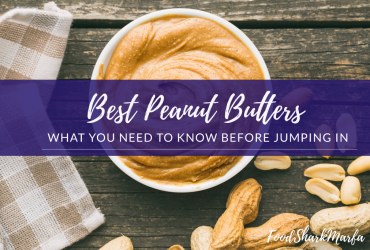
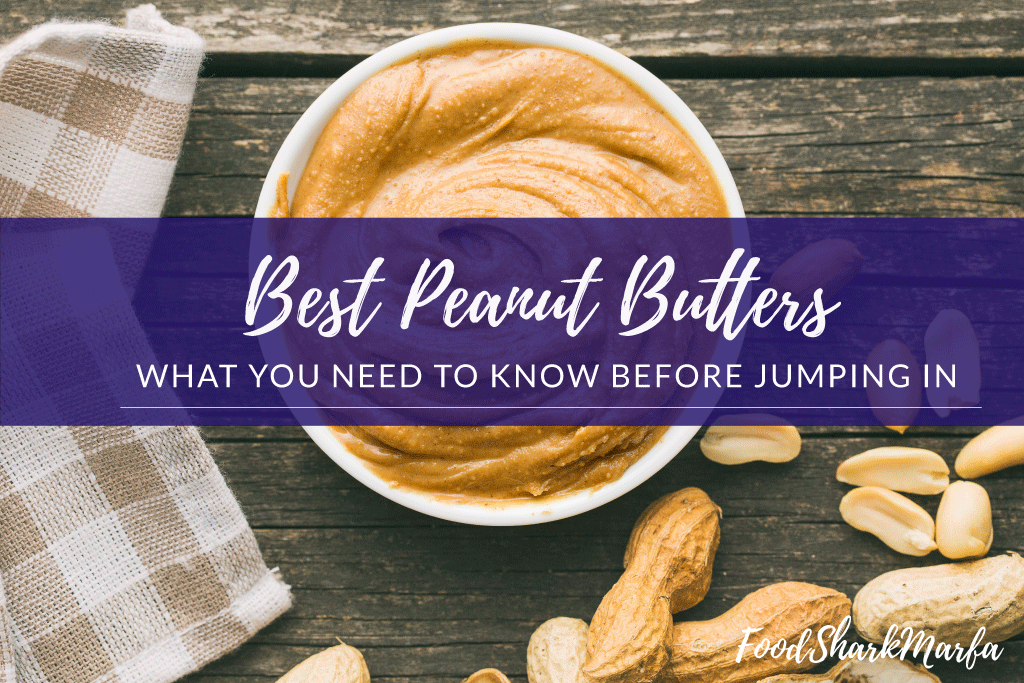
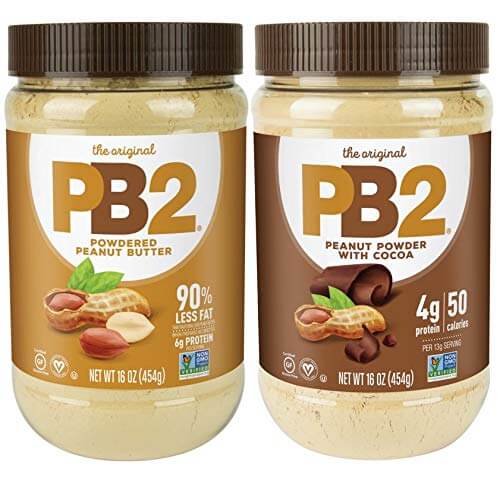
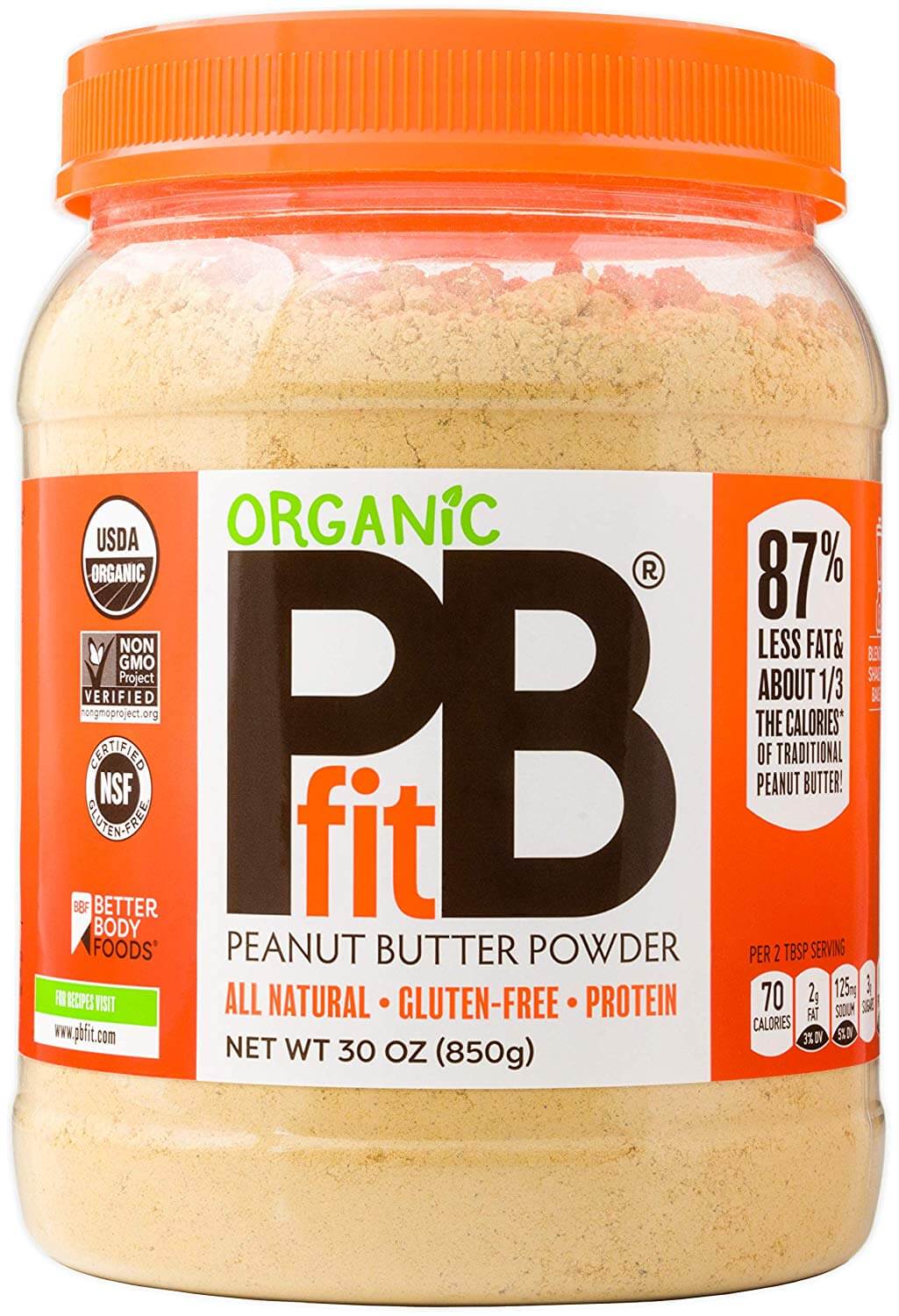
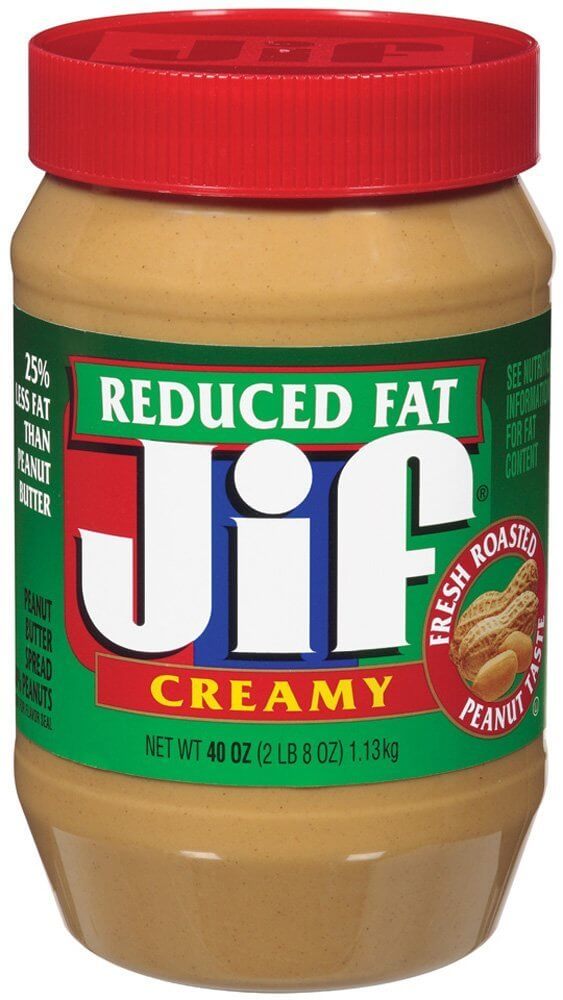
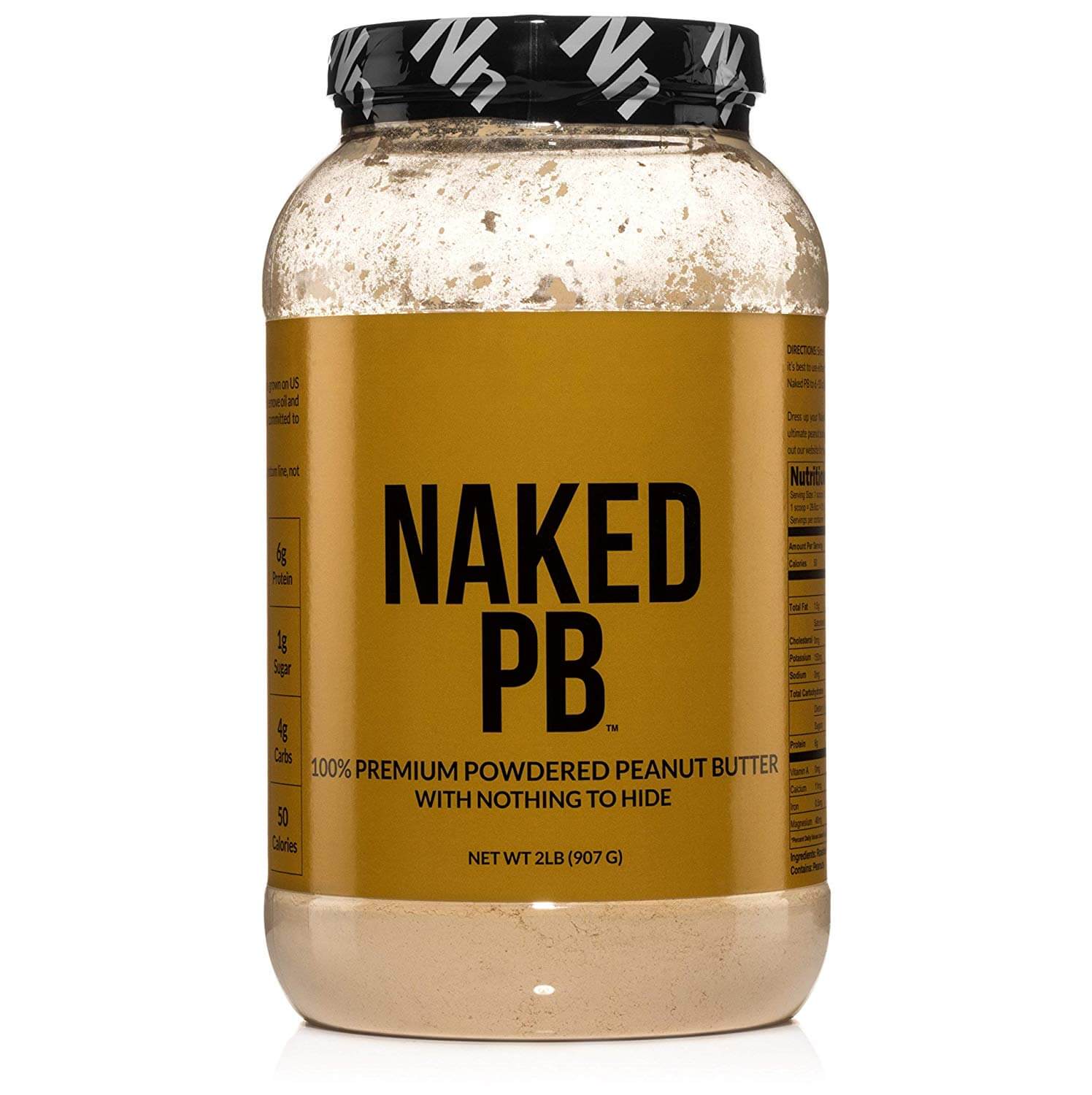
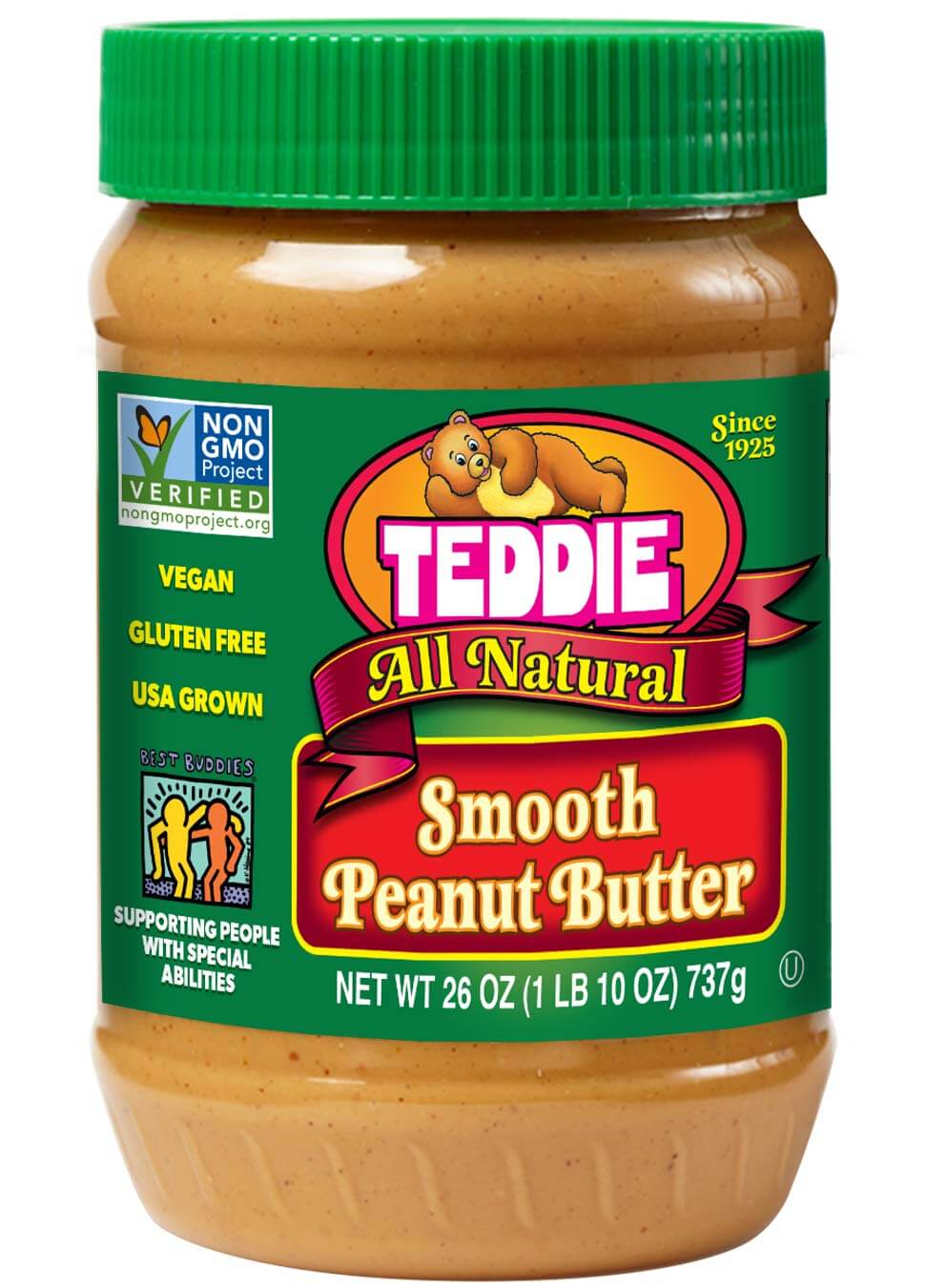
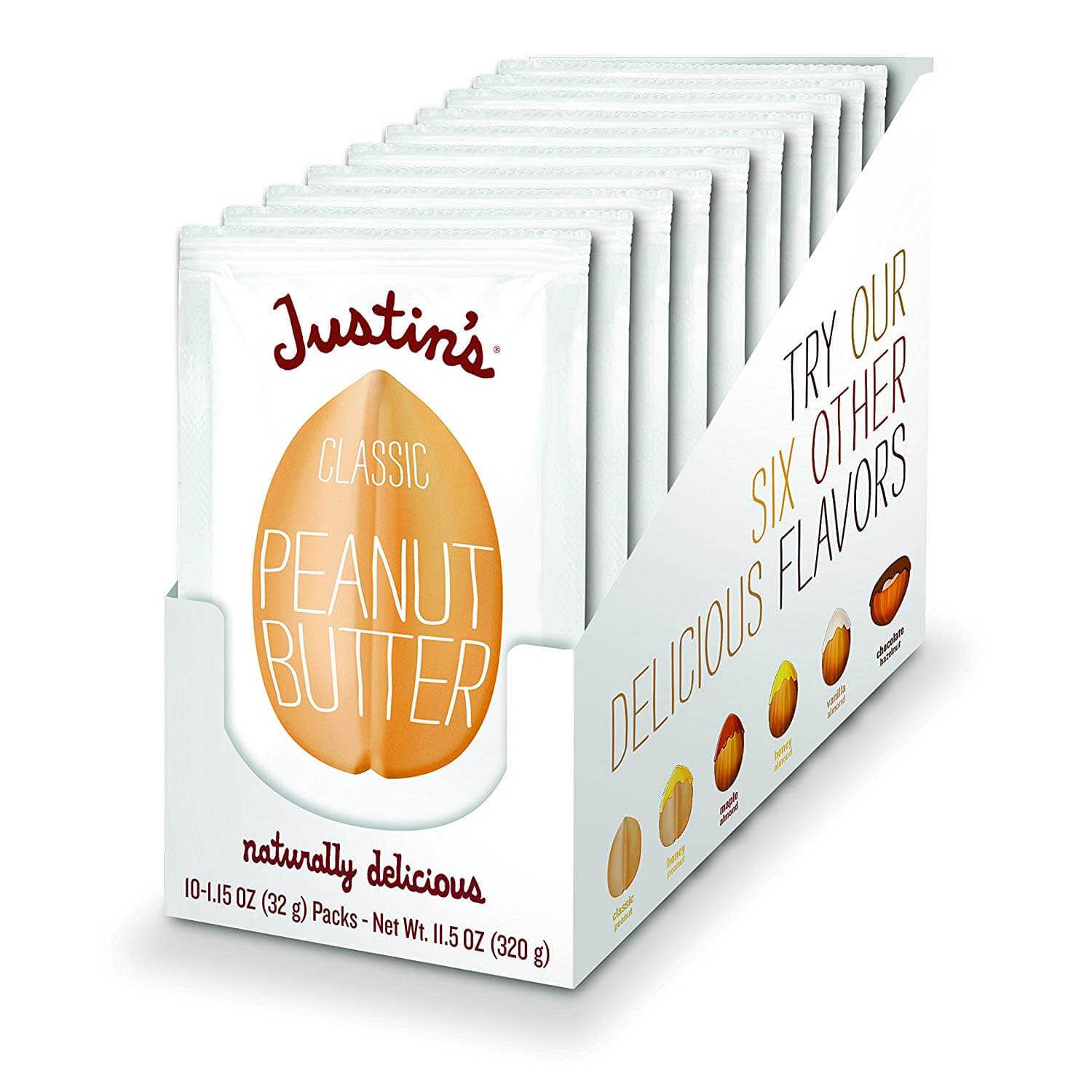
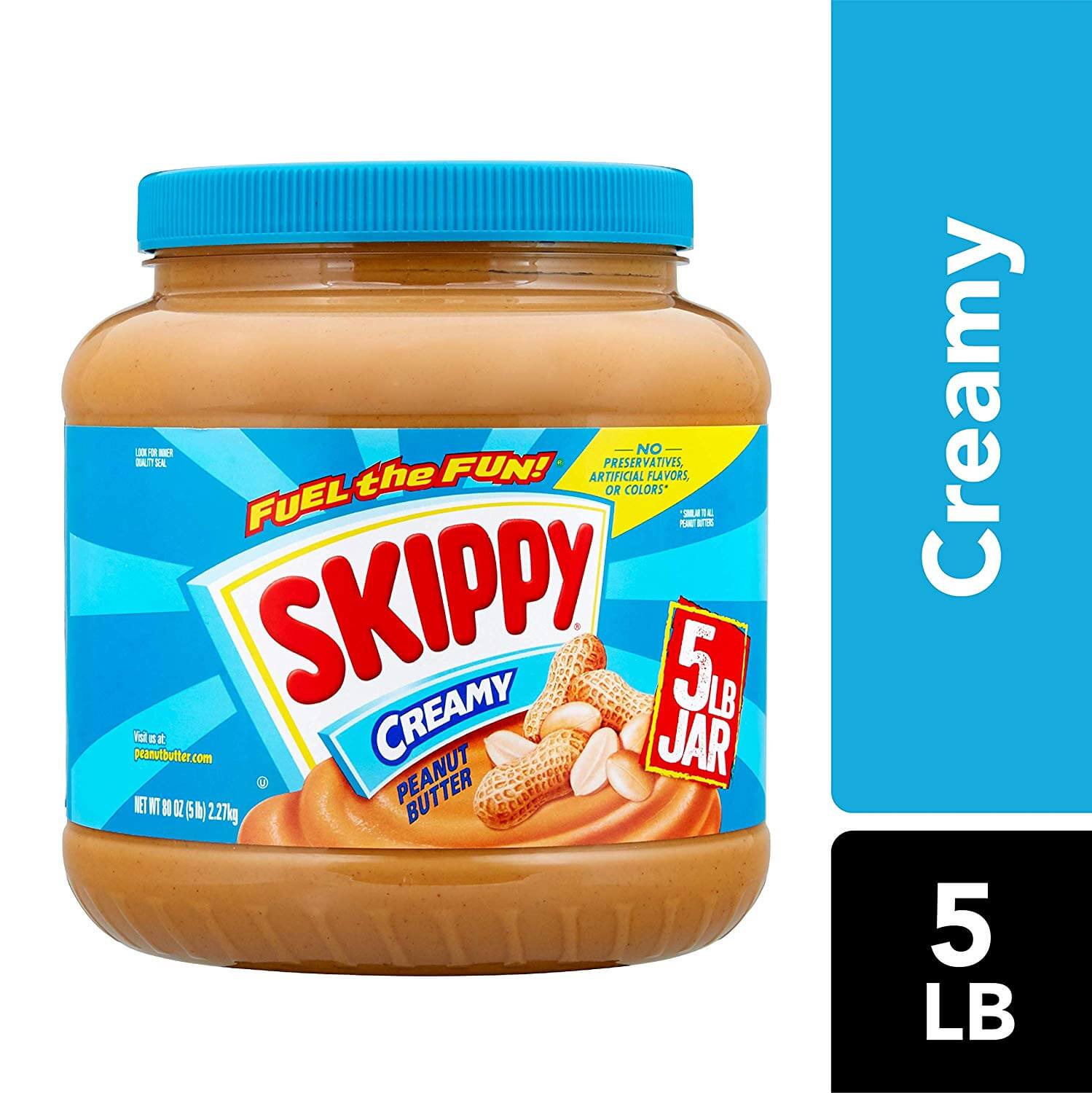
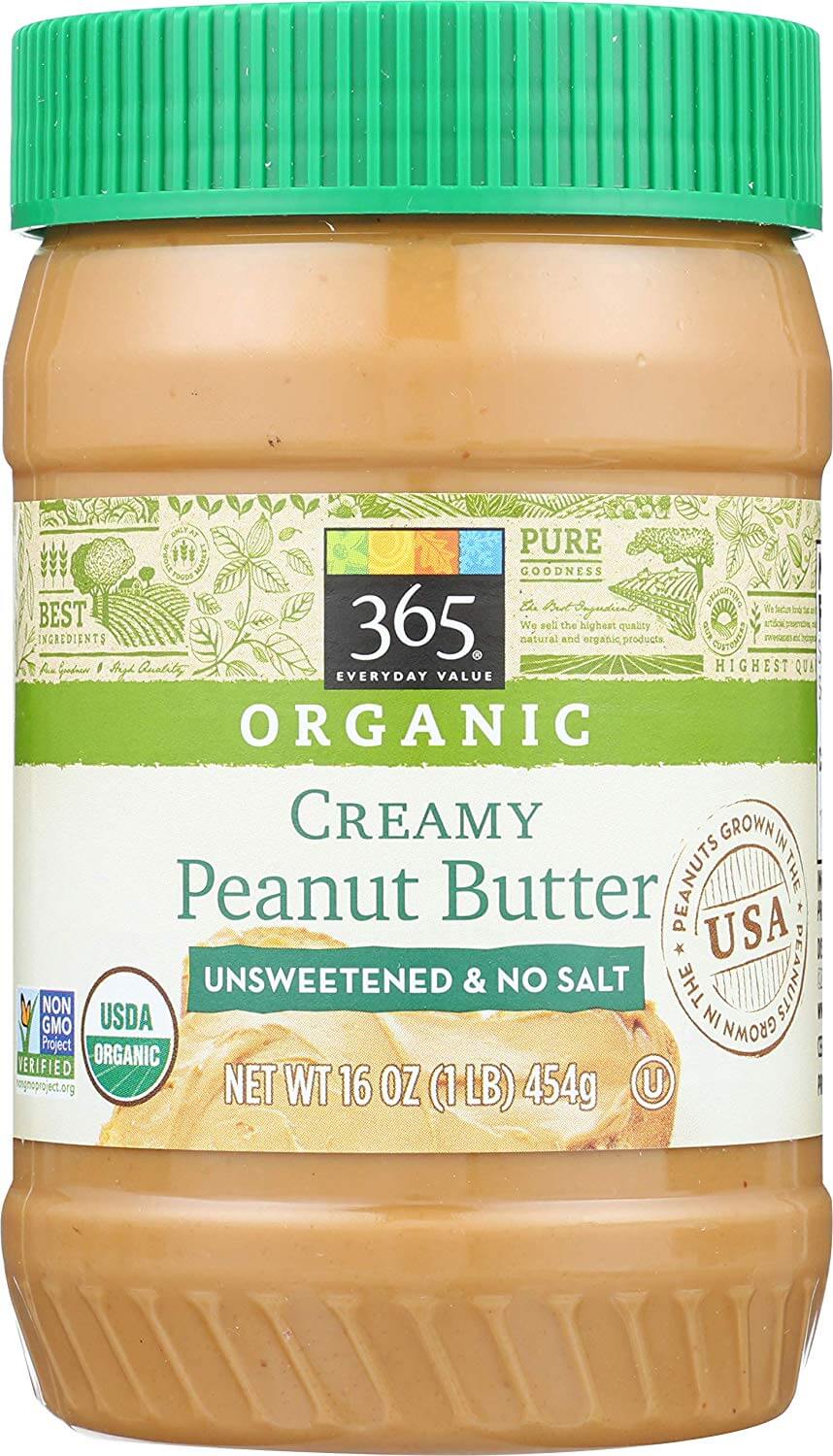
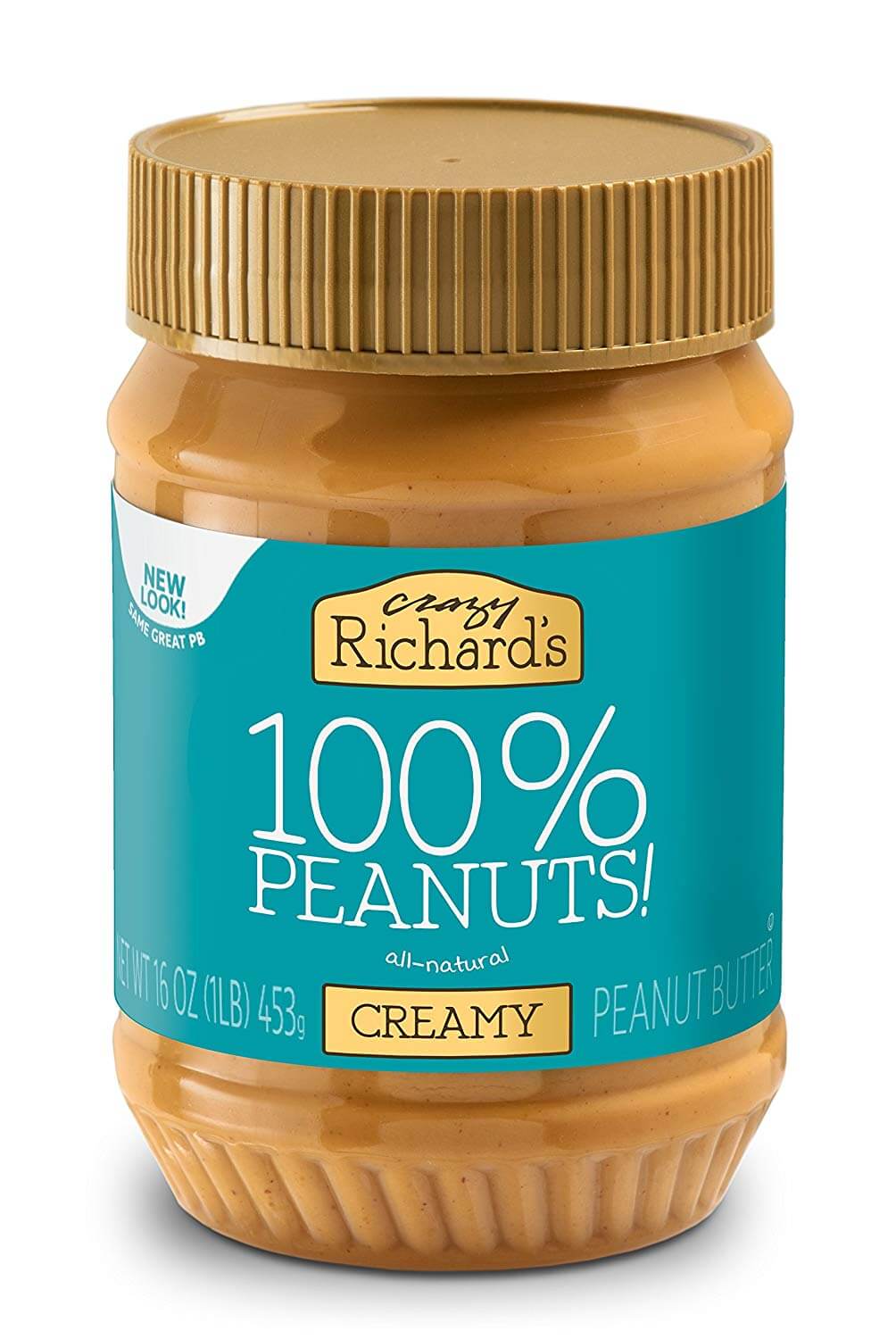
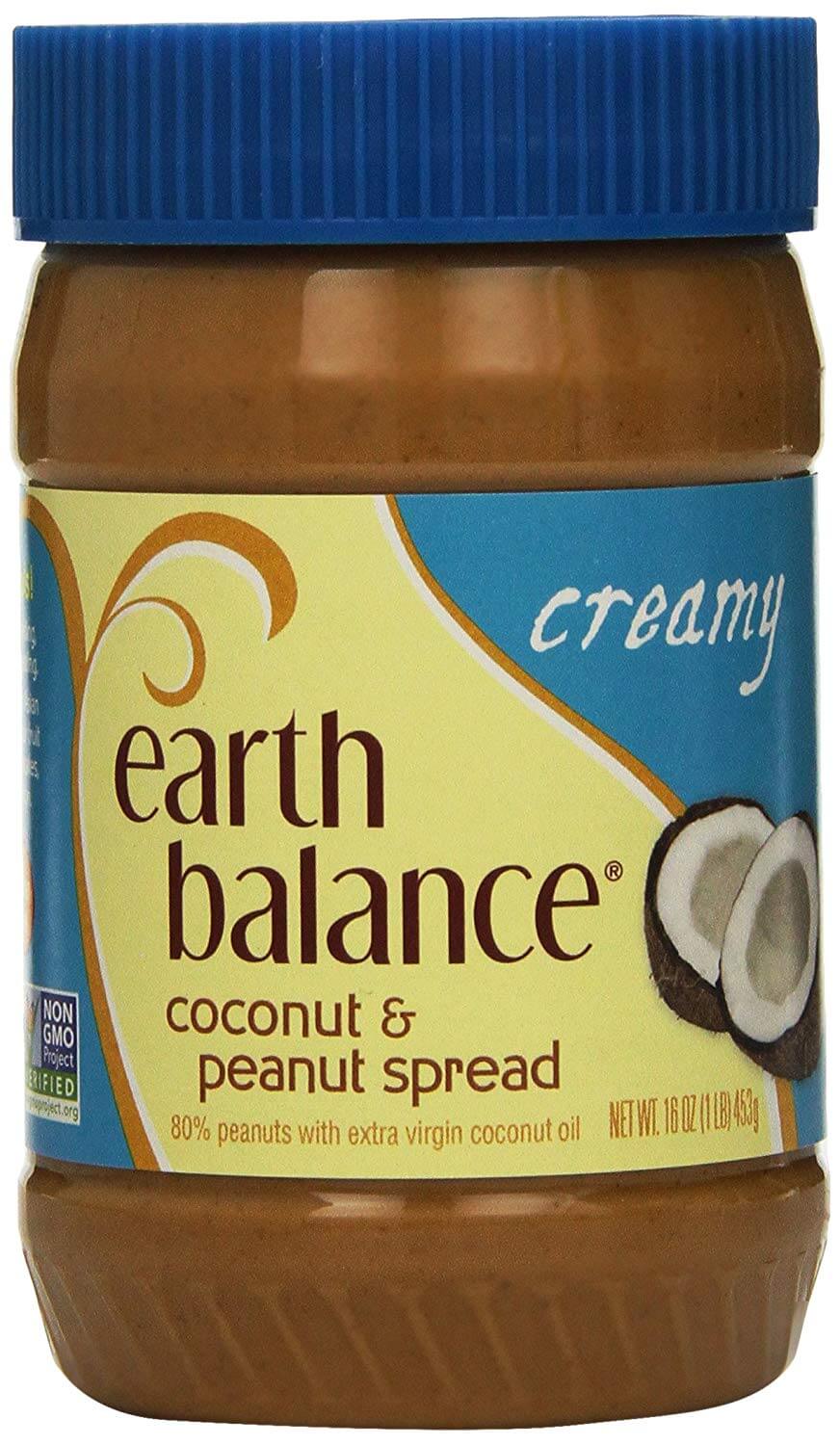

Related Posts
The 8 Best Canned Chili in 2023
The 13 Best Oat Milk Brands in 2023
The 7 Perfect Queso Fresco Substitutes